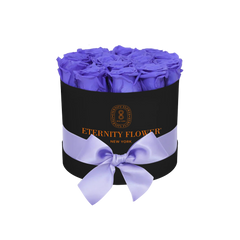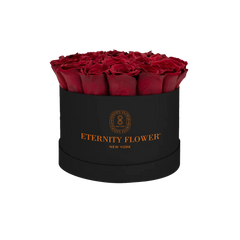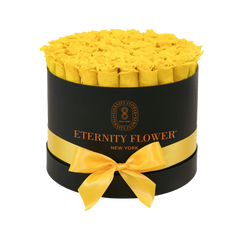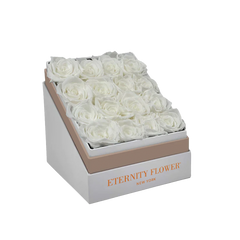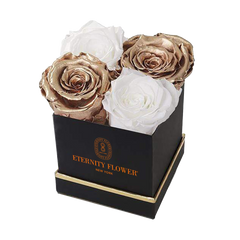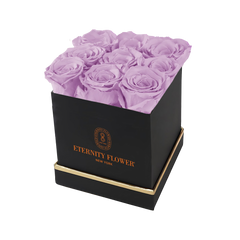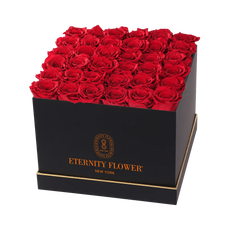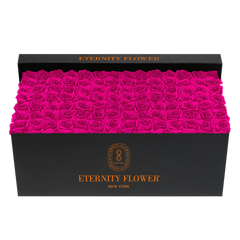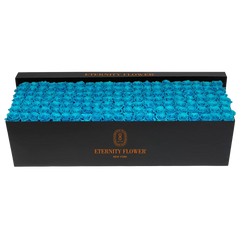Are you familiar with the game where you have to name things that begin with a certain letter? Today, we're going to learn about flowers, specifically flowers that start with F. It's possible that our list of secret gems and must-sees will surprise you.
From the drama queen Fuchsia, who likes to hang out in her cool, shady lounge, to Freesia, who loves the sun. There's more, though! Have you ever heard of a flower that seems to be on fire? There's the Flame Lily, which really steals the show and is as hot as it sounds.
1. Fuchsia

- Flower Type: Perennial/Annual
- Growing Zones: 6-11 (as a perennial), all zones (as an annual)
- Origin: Central and South America, with a few species from New Zealand and Tahiti
- Color: Shades of pink, purple, red, and white
Fuchsia plants are known for their unique, teardrop-shaped flowers that dangle beautifully from baskets, pots, or over garden beds. They thrive in cooler temperatures and partially shaded environments. Their vibrant colors and unusual shape make them a favorite among gardeners looking to add a splash of color to shaded areas of their gardens.
2. Freesia

- Flower Type: Bulbous perennial
- Growing Zones: 9-10
- Origin: South Africa
- Color: Yellow, white, orange, red, pink, mauve, lavender, and purple
Freesias are celebrated for their fragrant, zygomorphic flowers and are often used in perfumery and as cut flowers due to their long vase life. They prefer a sunny location and well-draining soil. Blooming in the spring, freesias have a sweet fragrance that adds an aromatic touch to gardens and indoor bouquets alike.
3. Forget-me-not

- Flower Type: Perennial
- Growing Zones: 3-8
- Origin: Europe, Asia, and North America
- Color: Typically light blue with yellow centers, but can also be found in pink and white
Forget-me-nots are delicate woodland flowers that hold rich symbolism in various cultures, often associated with remembrance and love. They thrive in moist, shaded areas, making them ideal for woodland gardens or areas near water bodies. These small but impactful flowers bloom in the spring, creating a carpet of color that can enhance any garden setting.
4. Foxglove

- Flower Type: Biennial (some varieties are perennial)
- Growing Zones: 4-10
- Origin: Europe, western and central Asia, and northwestern Africa
- Color: Purple, pink, white, and yellow
Foxglove plants are renowned for their tall spikes covered in bell-shaped flowers, which are a magnet for bees and hummingbirds. They prefer cooler climates and partially shaded conditions, thriving in woodland settings or on the edges of gardens. While foxgloves are stunning and can elevate the visual appeal of a garden, it's important to note that all parts of the plant are toxic if ingested, so caution is advised, especially around pets and children.
Read More: 30+ Enchanting Flowers That Start with E
5. Flax

- Flower Type: Annual/Biennial/Perennial
- Growing Zones: 5-9
- Origin: Eurasia
- Color: Blue, white, yellow
Flax is a versatile plant, known both for its delicate flowers and for its seeds (linseeds), which are rich in nutrients. The plant prefers full sun and well-draining soil, making it suitable for a variety of garden settings. Beyond its health benefits, flax adds a subtle beauty to gardens with its gentle blue flowers that dance in the breeze. It's also used in the production of linen, showcasing its utility beyond ornamental purposes.
6. Flame Lily

- Flower Type: Tuberous perennial
- Growing Zones: 8-10 (as a perennial), can be grown as an annual in cooler zones
- Origin: Tropical and southern Africa, and tropical Asia
- Color: Red, yellow, and orange, often with a flame-like appearance
The Flame Lily, with its vibrant, fiery colors and exotic look, is truly a showstopper in any garden. It thrives in hot climates and prefers well-draining soil with partial shade to full sun. It's often grown as a climber on trellises or supports, showcasing its sprawling nature. However, like the foxglove, the Flame Lily is highly toxic if ingested, so it should be planted with care in areas away from pets and children. Its striking appearance and rarity in temperate gardens make it a coveted plant for enthusiasts seeking to add an exotic touch to their flora collection.
7. Filbert

- Flower Type: Deciduous tree or large shrub
- Growing Zones: 4-8
- Origin: Europe and Western Asia
- Color: The flowers are not what the plant is primarily known for; instead, it's the nuts (hazelnuts) that are most recognized. However, the male catkins are yellow and noticeable in late winter.
Filbert, or hazelnut, trees are valued both for their delicious nuts and their contribution to landscaping. These plants can adapt to a range of soil types but prefer well-drained soil and full sun to partial shade. In addition to providing hazelnuts, filberts also offer visual interest in the garden with their catkins that appear in winter, adding color and texture during the colder months. Gardening with filberts is a long-term investment, as trees take several years to begin producing nuts, but the payoff includes both the edible harvest and the aesthetic appeal.
8. Fairy Lantern

- Flower Type: Perennial
- Growing Zones: 7-9
- Origin: California, Oregon
- Color: Creamy white to pale pink
Fairy Lanterns, also known as Calochortus albus, are enchanting wildflowers native to the western United States. They thrive in shady, woodland settings, preferring well-draining soil. The nodding, lantern-shaped flowers bloom in late spring to early summer, adding a whimsical touch to shaded garden areas or naturalized woodland gardens. Their delicate appearance belies a ruggedness that allows them to thrive in their native habitats, making them a captivating choice for gardeners looking to bring a bit of woodland magic into their landscapes.
9. False Indigo

- Flower Type: Perennial
- Growing Zones: 3-9
- Origin: North America
- Color: Blue, purple, white, and yellow
False Indigo, or Baptisia, is a robust and easy-to-grow plant that brings striking spikes of pea-like flowers to the garden in late spring to early summer. Known for its drought tolerance once established, it prefers full sun to partial shade and well-drained soil. The deep roots make it a long-lived plant, with some specimens thriving for decades. Beyond its beautiful blooms, False Indigo's foliage adds texture and interest to the garden throughout the growing season. Its resilience and low maintenance requirements make it an excellent choice for a wide range of garden designs, from formal borders to naturalized meadows.
Read More: 40+ Marvelous M Flowers: Dive into a World of Botanical Wonders!
10. Feverfew

- Flower Type: Perennial herb
- Growing Zones: 5-9
- Origin: Southeastern Europe and the Balkan Peninsula
- Color: White petals with a yellow center
Feverfew is a traditional medicinal herb recognized by its daisy-like flowers. It thrives in full sun to partial shade and well-drained soil. While often grown for its ornamental value, Feverfew has been used historically to treat various ailments, including migraines. The plant self-seeds prolifically, ensuring its presence in the garden year after year. Its charming flowers bloom throughout the summer, adding a delicate texture to garden borders or herbal plots. Care should be taken, as some people may experience skin irritation when handling the plant.
11. Fireweed

- Flower Type: Perennial
- Growing Zones: 2-9
- Origin: Northern Hemisphere, including parts of North America, Europe, and Asia
- Color: Bright pink to magenta
Fireweed, with its striking spires of pink and magenta flowers, is a resilient plant that often appears in areas recently cleared by fire, hence its name. It prefers full sun but can tolerate partial shade, and it thrives in a range of soil conditions. Fireweed is not only beautiful but also beneficial, attracting pollinators like bees and butterflies to the garden. The plant can grow quite tall, up to 5 feet in some cases, making it a dramatic backdrop or focal point in a garden setting. Additionally, parts of the plant are edible, and it's been used in traditional medicine and for making teas.
12. Flannel Flower

- Flower Type: Perennial
- Growing Zones: 9-11
- Origin: Australia
- Color: White, often with a hint of green or yellow at the center
The Flannel Flower, named for its soft, woolly texture that resembles flannel, is a symbol of resilience and beauty in the Australian landscape. It prefers sandy, well-drained soils and full sun, mimicking its native coastal and bushland habitats. The plant's striking appearance, with flowers that have a unique texture and delicate beauty, makes it a favored choice for native gardens and floral arrangements. The Flannel Flower requires some specific conditions to thrive outside its native range, including protection from excessive moisture and cold, but its distinctive beauty makes it a worthwhile challenge for gardeners in suitable climates.
13. Frangipani

- Flower Type: Tropical perennial tree or shrub
- Growing Zones: 10-12, can be grown in pots in cooler zones and brought indoors during winter
- Origin: Native to tropical regions of the Americas and the Caribbean
- Color: Flowers come in white, pink, yellow, and red, often with two or more colors blending together in each flower
Frangipani, also known as Plumeria, is beloved for its beautiful, fragrant flowers that adorn the tree in summer and fall. The flowers are commonly used in making traditional Hawaiian leis. Frangipani thrives in full sun and requires well-draining soil to prevent root rot. Although it's a tropical plant, it can be quite resilient and drought-tolerant once established. Its distinctive, thick branches and lush foliage, along with its stunning flowers, make it a focal point in any tropical or subtropical garden.
14. Fountain Grass

- Flower Type: Ornamental grass
- Growing Zones: 5-9
- Origin: Africa, Asia, and parts of the Middle East
- Color: The grass itself is a lush green, with bottlebrush-like flowers ranging from pink to purple hues
Fountain Grass is a popular ornamental grass known for its graceful, arching clumps that resemble a fountain's spray. It's a versatile plant that can be used in borders, as a specimen plant, or in mass plantings for a dramatic effect. Fountain Grass prefers full sun and well-drained soil. It's drought-tolerant once established, making it a low-maintenance option for gardens. The fluffy, feathery plumes appear in late summer to fall, adding texture and movement to the garden landscape.
Read More: 36+ List of Flowers that start with C and Where You Can Find It
15. Foxtail Lily

- Flower Type: Perennial bulb
- Growing Zones: 5-8
- Origin: Central and Western Asia
- Color: Flowers can be yellow, orange, pink, or white, arranged in long, dense spikes
Foxtail Lily, also known as Desert Candle, is a dramatic and eye-catching plant that produces tall spikes of densely packed flowers in late spring to early summer. It prefers a sunny spot with well-draining, sandy soil. Foxtail Lilies are perfect for adding height and visual interest to the back of borders or as a stunning focal point in the garden. Despite their exotic appearance, they are relatively easy to grow, though they do not tolerate wet, heavy soil well. The towering flower spikes can reach several feet in height, making Foxtail Lilies a striking choice for cut flower arrangements as well.
16. Four O'Clock

- Flower Type: Perennial (often grown as an annual in cooler climates)
- Growing Zones: 9-11 as a perennial; all zones as an annual
- Origin: Tropical regions of South America
- Color: Pink, red, yellow, white, and striped or variegated
Four O'Clock flowers are known for their unique habit of opening in the late afternoon around 4 o'clock and staying open until the next morning. They are highly fragrant and attract pollinators like hummingbirds and night-flying moths. These plants prefer full sun to partial shade and well-draining soil. They can grow quite bushy and are often used as border plants or for mass plantings. Their tuberous roots allow them to survive as perennials in warmer zones, where they can re-emerge year after year.
17. Fritillary

- Flower Type: Perennial bulb
- Growing Zones: 3-8
- Origin: Northern Hemisphere, including Europe, the Mediterranean, and Asia
- Color: Varied, including purple, yellow, white, and orange, often with a checkered pattern
Fritillaries are known for their distinctive, bell-shaped flowers that often feature unique checkered patterns. They prefer cool, well-drained soil and are best planted in locations that replicate their native mountainous and woodland habitats, such as rock gardens or shaded garden areas. Some species have a very unique fragrance, which is not always pleasant and is meant to attract pollinators like bees. Despite their delicate appearance, fritillaries are hardy plants that, once established, require minimal care.
18. Feather Reed Grass

- Flower Type: Ornamental grass
- Growing Zones: 4-9
- Origin: Garden hybrid, derived from species native to Europe and Asia
- Color: Green foliage with feathery, wheat-colored plumes
Feather Reed Grass is a popular ornamental grass known for its upright, clump-forming habit and elegant, feathery plumes that appear in early summer. It thrives in full sun to partial shade and can adapt to a wide range of soil types, as long as they are well-draining. Its tall, slender stalks, which can reach up to 6 feet in height, make it an excellent choice for adding vertical interest to gardens or as a privacy screen. Feather Reed Grass is also prized for its movement in the breeze and its ability to maintain its structure and color into the winter months, providing year-round interest.
19. Felicia

- Flower Type: Perennial or annual, depending on the variety
- Growing Zones: 9-11 as a perennial; can be grown as an annual in cooler zones
- Origin: South Africa
- Color: Bright blue, purple, or occasionally white, with a yellow center
Felicia, also known as the blue daisy or blue marguerite, is admired for its striking blue flowers that bloom almost continuously in the right conditions. This plant prefers full sun and well-drained soil, thriving in containers, hanging baskets, and garden beds. Its compact growth habit and cheerful, daisy-like flowers make it a popular choice for adding color and interest to sunny spots. While Felicia is drought-tolerant once established, regular watering and deadheading will encourage more blooms throughout the growing season.
20. Firethorn

- Flower Type: Evergreenshrub
- Growing Zones: 6-9
- Origin: Southeast Europe to Southeast Asia
- Color: White or cream flowers, followed by bright orange, red, or yellow berries
Firethorn is a hardy shrub known for its glossy green leaves, white spring flowers, and vibrant berries that persist into winter, providing interest and food for wildlife. It prefers full sun to partial shade and well-drained soil. Firethorn can be used as an effective and attractive hedge or wall cover, thanks to its thorny branches, which also make it a good choice for security planting. The plant is versatile and can be trained against a wall or fence. Regular pruning not only helps maintain its shape but also encourages more flowers and berries. Its ability to withstand drought, pollution, and salt makes it an excellent option for various landscapes.
Conclusion
Continuing our flower tour through the alphabet with flowers that start with F we've learned about a wide range of interesting flowers. Each flower in the garden has its own story, color, and charm. There are a lot of ways to use flowers to make landscapes look beautiful, draw wildlife, and add delicious scents. By accepting these flower gifts, we can turn any yard into a tapestry of color and scent, which makes our lives better and brings us closer to nature.






